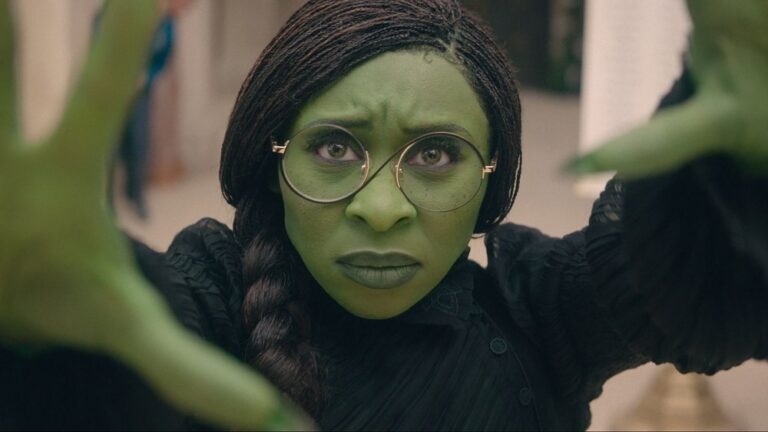Every couple of weeks, the OFCS polls its members with a question related to movies. It can be serious or amusing, but each member is given the opportunity to submit a short response to the question, which we will then post on Thursday mornings. Here is this week’s query.
Essay Question #6: Which filmmaker do you think should be better known?
Marilyn Ferdinand @ Ferdy on Films
Responses
Edwin Arnaudin @ Asheville Citizen-Times
James Ponsoldt. Each of his films are better than the last, starting with his underseen debut “Off the Black” (featuring the final audibly comprehensible performance by Nick Nolte). His handling of alcoholism – the through line of all his work I’ve seen, including his “Parenthood” episode – is honest and insightful and his ability to coax great work from young performers is close to unparalleled.
Perhaps his anonymity will change with “The End of the Tour,” which I can’t wait to watch.
Kevin Carr @ Fat Guys at the Movies
This will be a little out of the box and not a terribly respected choice, but Roel Reiné is one of my favorite genre directors out there. He makes a career out of making direct-to-video sequels to otherwise superior films (even if these original ones were films like The Scorpion King).
Reiné clearly has a lot of fun making his movies, and he does not mistake his limited direct-to-video popularity with grand vision. However, I think he would have a heck of a fun time bringing to life a larger-budgeted film for a more respected franchise. The man can handle characters and action together. He won’t win any Oscars, but he’d make a very entertaining major budget film.
Robert Cashill @ Popdose
Albert Lewin directed only a handful of credits, and the ones that aren’t available are difficult to see. But The Moon and Sixpence, The Private Affairs of Bel Ami, and Pandora and the Flying Dutchman are all distinctive, literary with touches of poetry and magic, and his name is affixed to one undisputed but perhaps underrated classic, The Picture of Dorian Gray.
Marilyn Ferdinand @ Ferdy on Films
Gina Prince-Bythewood is a female, African-American director and screenwriter, so she is almost guaranteed a permanent place on the “filmmakers who should be better known” list. I have hopes, however, that the world at large will recognize and treasure her enormous talent in the not-too-distant future. Prince-Bythewood cut her teeth as a writer on such intelligent TV programs for niche audiences as “A Different World” and “South Central.” Her spectacular 2014 film BEYOND THE LIGHTS ended up on several Top 10 lists, confirming the promise she showed with her debut feature LOVE & BASKETBALL (2000), a romance in which the central characters—like those in BEYOND THE LIGHTS—were given full lives and room to grow into their love. Her 2008 feature THE SECRET LIFE OF BEES, offered a fascinating community of African-American women and showcased her generally optimistic outlook on the power of love and community. That she has only made three features in 14 years is criminal, given the excellence of each, and she should be better known by those with the power to greenlight her projects and better marketed to audiences across the spectrum of movie viewing. Her literate, classical films will have wide appeal.
Candice Frederick @ Reel Talk Online
Kasi Lemmons. Because Eve’s Bayou is a classic and deserves to be watched and re-watched. Plus, she has a way of moving the audience in both fiction and non-fiction films that are accessible and universal.
Kristen Lopez @ Awards Circuit
There’s several I appreciate, although they aren’t particularly prolific: Andrew Jarecki, Gina Prince-Bythewood, and Jamie Babbitt, for example. I’m also a fan of classic films so some of the smaller directors from that era like Jack Conway and Mervyn LeRoy.
Marty Mapes @ Movie Habit
I’ll take the liberty of offering two answers because I don’t think I’ll get caught. My first answer is Jacques Tatí who worked in the mid-20th century. While OFCS members and readers probably know who this comic icon is, the people in my family probably don’t know his work. Subtle, observant, and humanistic, Tatí’s comedy is immediately funny, and remains charming after multiple viewings.
My second answer is another Frenchman, Marcel Pagnol, who is probably much less well known, even among some critics. Pagnol was a dramatist from Provence who got his start on the stage, and was exactly the right age to build a career in film (the advent of sound and growth in the French film industry coincided with Pagnol’s maturity as a playwright). Pagnol’s stories have deep roots in peasant life, and he always worked with nationally renowned actors (e.g. Raimu and Fernandel) to bring them to life. His work is on the melodramatic side, but all the emotions are earned, not wrung.
Kenneth Morefield @ 1More Film Blog
It’s hard to claim that a two-time Oscar nominee is not well known, but one rarely hears Stephen Frears mentioned in discussions about top-flight directors.
His films are always visually engaging and are often more thematically complex than one is used to from studio releases. It’s hard to pigeonhole the director who made both High Fidelity and The Queen, both Tamara Drewe and Mary Reilly. But if I see Frears’s name attached to a project, I get in line to buy a ticket.
Pat Mullen @ Cinemablographer
Ingrid Veninger has earned the crown of DIY indie film queen of Toronto filmmaking, and it’s a marvel what she can do with a shoestring budget and a philosophy that nothing is impossible. Her modest and intimate, yet honest and innovative productions like Modra, i am a good person/i am a bad person, and The Animal Project are great films that anyone exploring the new possibilities of independent filmmaking should study.
Frank Ochieng @ Sound on Sight
There are too many filmmakers that are household names and even more that deserve to be household names. So yes…there is indeed a problem with certain filmmakers that should be better known in the movie-going public eye.
The late British-born filmmaker John Schlesinger comes to mind as the Oscar-winning director for 1969’s “Midnight Cowboy”. Sure, “Midnight Cowboy” was his signature swan song by the standards of some casual film fans. Still, Schlesinger’s impressive film credits are varied, daring and challenging in rhythm, reasoning and resonance. No doubt that Schlesinger was highly regarded by his peers in the film industry. The question remains: why doesn’t he come up in casual conversations among devoted cinephiles as an impacting movie-maker? “Darling”, “Sunday Bloody Sunday”. “The Day of the Locust”. “Marathon Man”. “Madame Sousatzka”. Enough said.
Jamie S. Rich @ DVDTalk.com
It always surprises me that Hsiao-Hsien Hou has not gotten more attention over the years. Particularly in the last decade, when his 2001 film Millennium Mambo kicked off an impressive run of deeply felt, creative motion pictures.
The Chinese director’s output is very personal, whether it’s the small, contained human dramas of Cafe Lumiere or Flight of the Red Balloon (both of which span nations: Cafe was made in Japan, Red Balloon in France), or the more ambitious multi-narrative of Three Times. The latter tackles the notion of romantic fate and recurring love via a triptych of love stories taking place at different times in history. It’s stylish and daring but without sacrificing any of the heart and soul that make his best films come alive. It also stars his frequent muse, Shi Qu. She’s returning for his next movie, Nie yin niang, which is currently listed on IMDB as being in post-production, but with no release date as of yet. Can’t come soon enough for me.
Jerry Roberts @ Armchair Cinema
Ask on a different day the same question “Which filmmaker do you think should be better known?” and you’ll get different answers. In this case, on this day, my heart belongs to Jonathan Glaser. In his decade-and-a-half as a filmmaker, he’s only directed three features. That doesn’t seem like a lot but in his case, it falls under the banner of quality over quantity. Recently, I put his most recent film “Under the Skin” at the top of my ten best list for the calendar year ending 2014.
Previously he’s directed “Birth” about a woman who struggles with the suggestion that a 10-year-old boy is the reincarnation of her dead fiance, and “Sexy Beast”, a twist on the old pulling-the-old-gang-member-out-for-one-last-job. His films have an angular view of the world. They don’t walk or talk like your typical narrative. In the case of “Under the Skin” he bends and twists our perception of conventional movie structure like a pretzel. I look forward to what he’ll give us next.
Gregory J. Smalley @ 366 Weird Movies
A few years ago I might have mentioned Denis Villeneuve or Nicolas Winding Refn, but both these directors have managed to achieve some success and notoriety in recent years. A name that comes to mind is Jaco Van Dormael (“Toto the Hero,” “Mr. Nobody”), whose complexly plotted and meticulously created fantasies seem to be cursed when it comes to finding decent distribution outside of France and Belgium.



